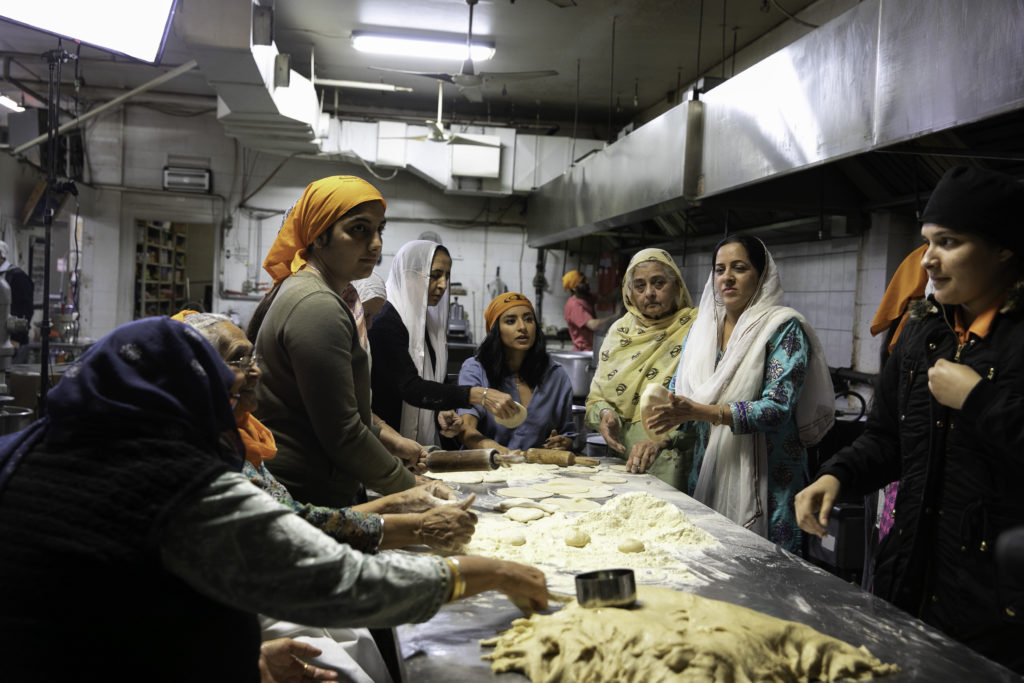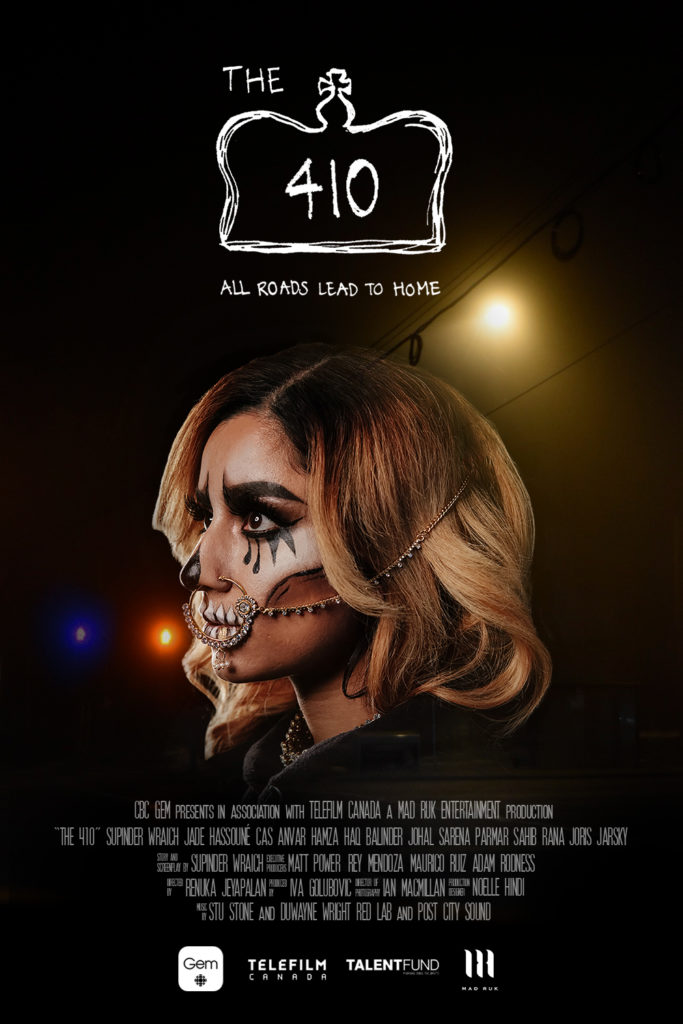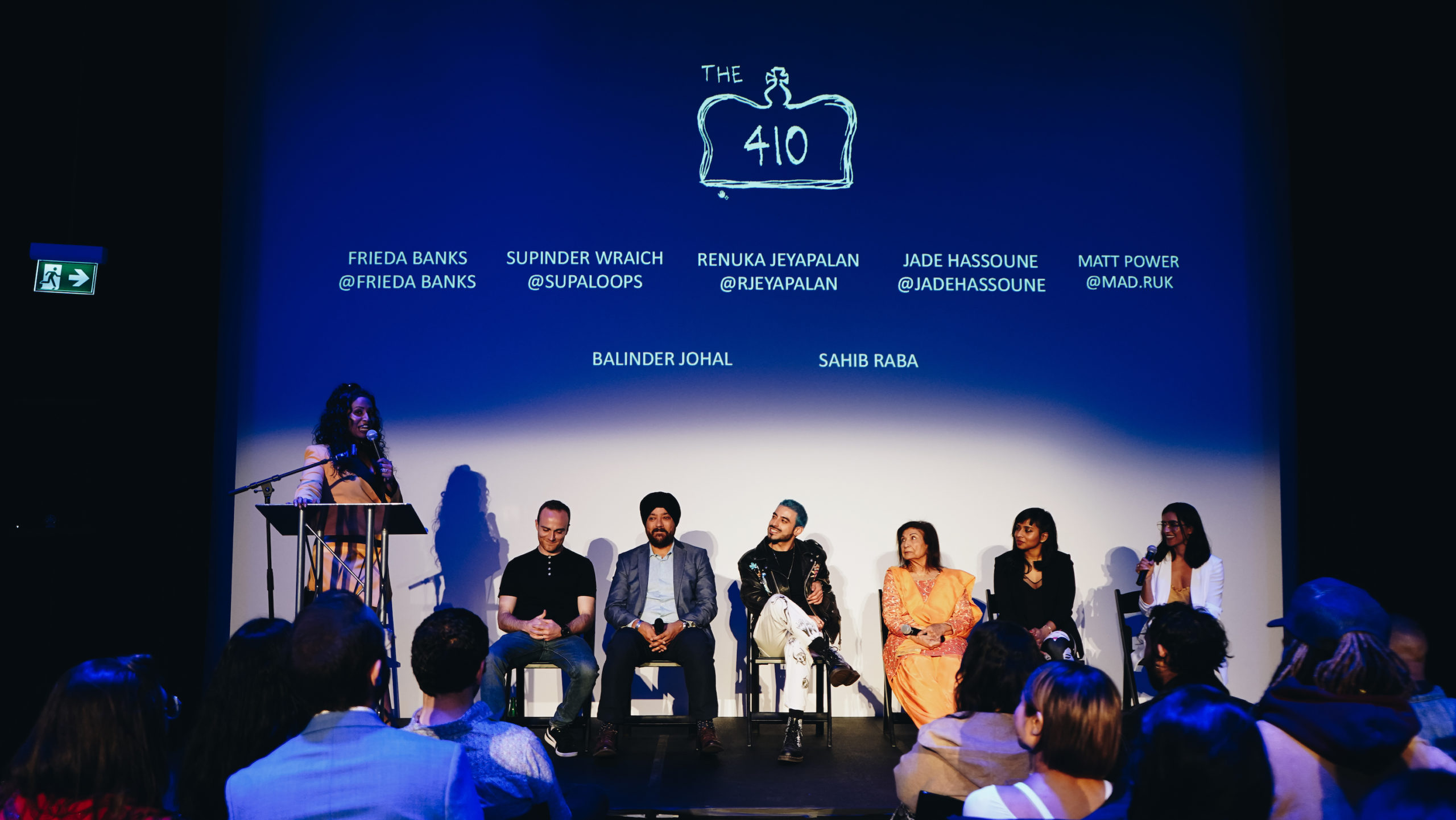Sometimes writing for Hollywood North Magazine really provides gifts more than assignments. The people I have the privilege of talking to can be immensely inspiring. Let’s face it, making films and telling great stories is not easy. It takes talent, it takes incredible tenacity and ambition, and it takes a lot of luck and problem solving; not to mention an incredible team of talent! If it was easy we’d all be filmmakers because we all have a blockbuster in every one of us.
Supinder Wraich is a talent on the rise that is collecting every ingredient necessary to make films that we can all eat up. She moved to Canada from India when she was 4 yrs old and made her new home in the Toronto area. She’s been acting in films but has found that there weren’t many opportunities being offered to women of colour or Asian decent… so she decided to create her own opportunities by learning to write, direct and produce. Her attitude and ambition is one that gets me extremely excited and loud about. It’s what this magazine exists for and why I love my position.
Supinder Wraich moved to LA almost a year ago and her series had premiered at the VISAFF recently. We spoke about her series 410 and it was eye opening as well as very earnest. It was written and produced by her and directed by the talented Renuka Jeyapalan. The 410 is her first soiree into feature films but I can foresee more coming.
“What does the 410 represent?”
“In the greater Toronto area there is this singular highway that leads you into Brampton. That’s the 410. We really wanted to use it because it represents so much of that community. It’s a severed community and their main vein to the city is the 410 as well as the truck drivers using that route to get in and out of the city. At 5 pm on a weekday the 410 is jammed with tractor trailers/transport trucks because it’s the cities economy that relies on for their livelihood. It’s why I called it the 410.”
“You play the lead. Did you write it with yourself in mind or was that a coincidence?”
“As an actor of colour, I had felt that in my career I hadn’t been provided the opportunities to play characters with depth and the exploration of humanity, nuances and flaws. Throughout my career I’ve been playing characters with no flaws and were only there to serve the main characters, which were often 90% Caucasian. With that angst to play someone with more depth I most definitely wrote the part with myself in mind. I knew I wanted to play an anti-hero or someone who wasn’t ‘perfect’. In this world of truck driving, is one that I’m very familiar with because my father owns a trucking company. My uncles are truck drivers and I grew up in this world. A couple of years ago I started seeing articles about Indo Canadian truck drivers getting caught up in the drug trade. I had an immediate interest in the topic because I felt like I knew these men, like an uncle or family member; that world was so familiar to me. What if my dad was a drug dealer and what would happen to me, what would I do? That’s where this story really came from.”
Supinder continues, “In this story, the father and daughter weren’t speaking to each other and it took this incident, which on the surface seems like a bad thing to bring them together but it brought them to a place where they have a more truthful understanding about each other. I think that sometimes things that look bad on the surface can actually be gifts in disguise. That’s one of my favourite parts of the story.”
“Are any of the characters based on real people in your life?”
“They have aspects and qualities of people that I know, such as the grandmother character in terms of her standards she requires from her granddaughter. I see certain aspects of my grandmother. I think as a writer your loved ones can’t hide from finding their way into your stories. They’re all definitely hidden in there in terms of their qualities and characteristics.”
“When did first come up with the concept?”
“I started playing with the idea in 2017 and we applied to Telefilm’s micro-budget in 2018, which is now the Telefund program. After being approved for the funding we then approached CBC because we needed a broadcast partner onboard. We didn’t want to put it on Youtube in the hopes it would find its audience, we really felt it was an important Canadian story that needed to be told. Luckily CBC felt the same way and we were very lucky to have them as a partner.”
The series can be seen on CBC Gem and the episodes range between 20-25 minutes. After watching the episodes, I have to agree with Supinder that Gem is a much better format/location to view the unique and very Canadian series.
“Did you have to tweak or change anything in the series upon getting approval for broadcasting?”
“It was really interesting because they gave us a lot of freedom as creators. There were very few notes that came from them and any that did come came in the form of clarity and not censorship. If you’ve seen Workin’ Moms, you know that CBC is quite open and liberal in its content. It was very collaborative.”
“Where did you shoot the series?”
“For the most part we shot the exterior footage in Brampton and the house that we shot in was my parents home in Rexdale. The other scenes where there was an apartment that led to dancing on a rooftop was in Toronto but for the most part, the scenes take place in the same locations depicted in the story. What’s funny is, approx. 3 weeks after shooting it I moved to Los Angeles. It was a very fast moving time in my life.”
“Is the cast all from the Toronto area?”
“Actually the grandmother, Belinda Johal is from Vancouver and Cas Anvar (The Expanse) who plays Billa is from Montreal. Jade Hassouné (Shadowhunters) that plays JJ is also a Montreal native and Sarena Parmar is also from Vancouver. In terms of the main cast, I think I was the only one from Toronto. We didn’t really audition any of the main actors because I had known them from the acting world and we just offered them the part. The character that plays my father was the hardest to find. This was his first acting job. In most of the films I’ve been in, very often they’ll pair me with an actor playing my father that is usually from South India where I’m from the North. Anyone that’s watching it that was familiar with the culture would know immediately that he wasn’t my father. For me, it was very important to find a North Indian man to play my father that speaks Punjabi. For my audience it just feels accurate. For people that have not had the ability to make television prior, the landscape is shifting and changing and allowing our voices to be heard. When you watch shows that are made by the people of that culture you get a much more accurate depiction, which is really important to an audience these days. It was very important to us to strive for as much accuracy as possible.”

“Who do you see as your audience?”
“I made the show as one that I would love to watch. I’d never seen a South Asian female lead, so in essence its intended for the female between 18-40 or 50 that like the crime genre and haven’t seen themselves depicted in that genre. Outside of that, I think that anyone that enjoys a fun crime story will enjoy the show.”
“I found the writing and the storyline very appealing and pretty solid. Did you attend school for screenwriting?”
“I went to film school at Sheridan College approx. 10 years ago where it focused on advanced producing and writing for 1 year. Going into this series, I really read a lot of books. It took me awhile figuring out how to structure the plot, what the inciting incident is, what my character needs versus my character wants. I did a lot of research while writing the show. Storytelling is so simple but can also be so complicated to tell a good story. Mostly the writing came from reading books and applying the knowledge that they were teaching. In terms of acting, I didn’t really go to acting school but I did a program at the Canadian Film Center, at the actors conservatory, which is 8 mths long.”
“How many episodes are you anticipating to finish in the series?”
“I’d like to do three more episodes and then lock it for distribution outside of Canada.”
“I know you’ve directed a film in the past, Ruby’s Tuesday. Is it your intention to pursue more directing or stick with writing and acting?”
“I feel as a Canadian actor, it’s difficult to maintain a career and a living if you’re not a multihyphenate because there’s not enough work unless you’re a lead on a series. Because it was a necessity for me to wear all these hats operating in a Canadian system, I’ve really taken an interest in all three positions for my survival as an artist and to grow as a storyteller. I definitely have an interest in pursuing all three as well as producing. I’ve found that in order to get projects off the table and into the real world you’ve got to become a producer in order to get it made.”
“If you could fast forward 5 years, where would you like to see your career?”
“That’s a question I’ve been asking myself lately. I’d love to see myself making another show that I have a creative handle in. Whether that’s as an actor or writer/producer. Now that I’ve got a taste of doing my own show, going back to only acting feels a little unsatisfying. I’d like to see myself having a more creative input going into the projects I’m involved in moving forward.”
“If you could compete in a professional sport, what would it be?”
“Oh… well there’s one that I have no set of skills in but I think it’s glamorous, a tennis pro.”
“Would you rather bake from scratch or cook a big meal?”
“I think I’d cook a nice big meal. I have a sweet tooth but I love spending time cooking. I’ll probably cook a nice big meal tonight because I need to feed myself. One necessitates the other.”
“In terms of places in the world you’d like to make a film, where would you want to shoot it and why?”
“I’d love to make a film in India. I was born in India in an Indian village. I remember being a kid and my parents telling me we’re going back to the pind (Punjabi word for village), which is what you call the village you’re from. I remember telling them I didn’t want to go back there because there’s no electricity and you have to be to bed by 9:00. It was so boring as a kid but as an adult you get to see other things that happen in the village that you’re not privy to as a child; affairs, romance, love stories, death and what that means. I think it would be really fascinating to go back to a place I considered boring to realize all the intrigue that exists there.”

Keep Supinder Wraich on your radar. She is passionate about filmmaking as well as representing India in its truest sense. You can guarantee her casting will represent regions of India honestly and remarkably. If you’re not from India or familiar with the culture you will still enjoy this series for the family connection it represents.

